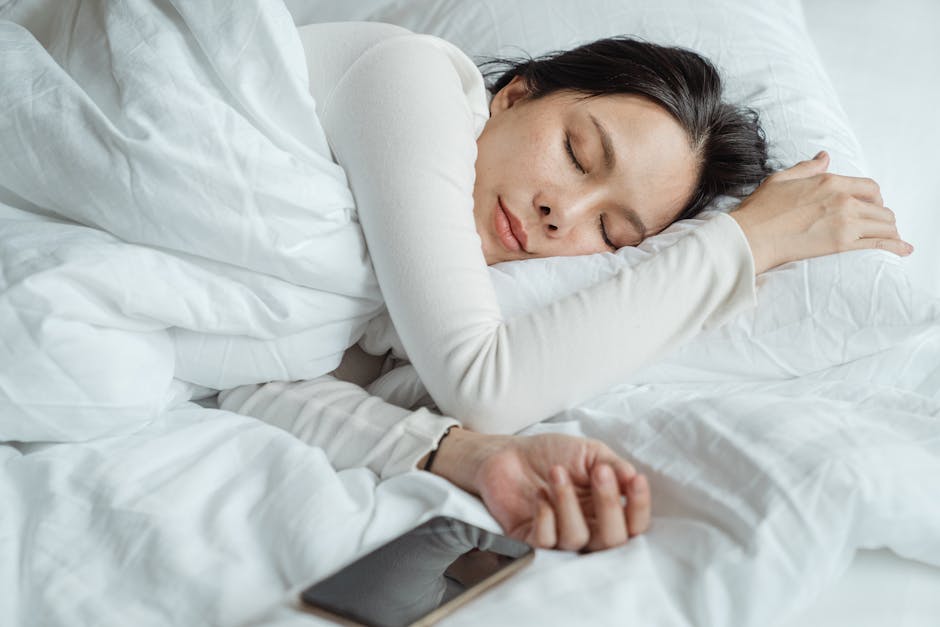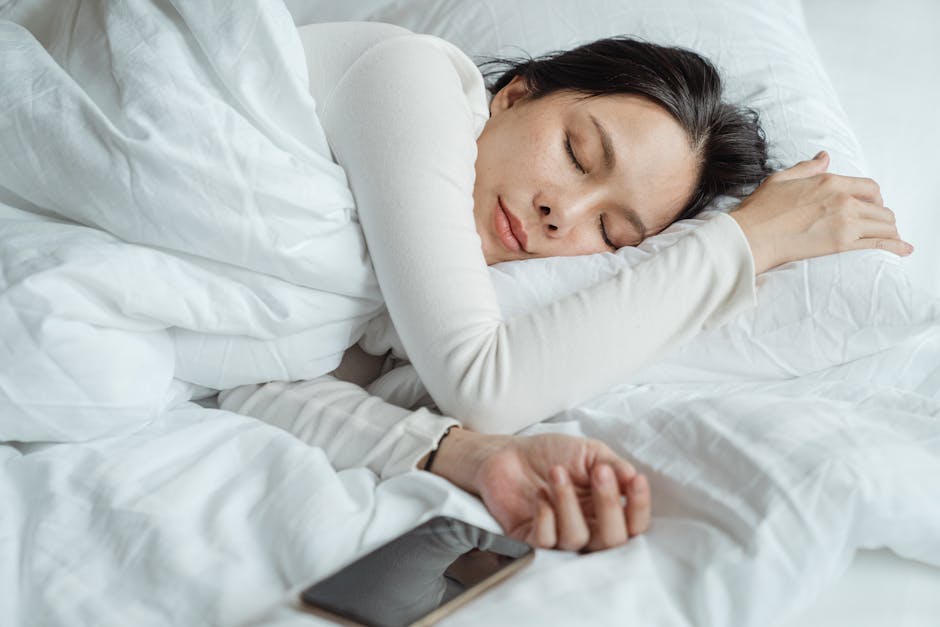
The Top 5 Benefits of Using a Sleep Apnea Pillow for a Healthier Night's Rest
Introduction to Sleep Apnea and Its Impacts on Health
Sleep apnea is more than just loud snoring; it’s a serious health condition that disrupts your breathing while you sleep. Imagine you’re asleep, and suddenly you can’t breathe for a short period. This can happen multiple times each hour all night! Not only does it lead to poor sleep quality, but it can also increase your risk of heart disease, diabetes, and even depression. Basically, when your breathing pauses, your body freaks out, leading to high blood pressure and a lot of stress on your heart. Plus, the exhaustion you feel the next day isn’t just because you’re a little tired; it’s because your body was working overtime trying to keep you alive. So, getting a good night’s rest is not just about feeling rested. It’s about keeping your body healthy and reducing the risk of some pretty serious health problems.
What Is a Sleep Apnea Pillow?
A sleep apnea pillow is a specialized pillow designed to support your head and neck in a position that enhances breathing and reduces snoring and sleep apnea symptoms. Unlike regular pillows, these are shaped to ensure airways remain open throughout the night. They’re for anyone seeking a better night’s sleep, but especially beneficial if you have sleep apnea. These pillows also help in maintaining a side sleeping position, which is known to be effective in reducing sleep disturbances. By aligning your head, neck, and spine, they ensure a more comfortable and uninterrupted sleep. This simple change can make a huge difference in the quality of your rest.
The Top 5 Benefits of Using a Sleep Apnea Pillow
If you deal with sleep apnea, you know the struggle. A sleep apnea pillow could be the game changer you need. Here are the top 5 benefits. First, these pillows help keep your airways open. They’re designed to support your neck and head in a way that reduces the blockages in your throat. Second, they promote better sleep positions. No more awkward angles that worsen your condition. Third, using a sleep apnea pillow can reduce snoring. This is good news for anyone sharing your bed. Fourth, they’re portable. Take your better sleep wherever you go, be it a hotel or camping. Lastly, these pillows can decrease the need for CPAP machines for some people. Less machinery, more natural sleep. In short, a sleep apnea pillow might just be the key to a healthier night’s rest.
How a Sleep Apnea Pillow Promotes Healthier Breathing Patterns
A sleep apnea pillow is designed to keep your airways open all night. It tilts your head and neck in such a way that reduces the chances of your tongue and soft tissues at the back of your throat blocking your airway. This can lead to smoother, uninterrupted breathing while you sleep. For folks battling sleep apnea, this can make a huge difference. Essentially, it turns your sleep from a choppy sea into a calm lake. By promoting a more stable sleeping position, it ensures that your body finds an optimal posture. This reduces the frequency of breathing pauses known as apneas. The result? You wake up feeling more refreshed because your body spends more time in deep, restorative sleep stages. And when you breathe better, your body gets more oxygen. More oxygen means your organs work better, you think clearer, and overall, you just feel a whole lot better. So, a sleep apnea pillow isn’t just about comfort — it’s about creating a better environment for your body to heal and rejuvenate itself every night.
The Role of Sleep Apnea Pillows in Reducing Snoring
Sleep apnea pillows do more than just provide comfort; they’re designed to tackle snoring, a common symptom of sleep apnea. By supporting the head and neck in a specific way, these pillows keep the airway open. This means less obstruction and less snoring. The shape and material of a sleep apnea pillow make a big difference. They ensure your head is positioned to reduce the likelihood of your tongue and soft tissues in the throat from blocking the airway. Better positioning equals quieter nights. Essentially, it’s not only about the material or the fluffiness. It’s how the pillow aligns your sleep posture. This alignment is key in minimizing snoring sounds that can disrupt sleep. So, a sleep apnea pillow isn’t just another pillow. It’s a tool in your arsenal for a better, quieter sleep.
Improving Sleep Quality and Duration with a Sleep Apnea Pillow
A sleep apnea pillow is more than just a comfy place to rest your head at night. Think of it as a tool, designed specifically to tackle some of the biggest sleep challenges you face. When you lay down with one of these pillows, you’re not just aiming for a cozy spot; you’re setting yourself up for a night of deeper, more restful sleep. Here’s the deal: by supporting your head and neck in a way that keeps your airways open, these pillows make it easier for you to breathe. This means less snoring and fewer pauses in your breathing - big wins for anyone sharing your bed, too. But the real cherry on top? You wake up feeling rested. That’s right, actually feeling like you slept. Plus, with your body getting proper oxygen all night long, it’s not just about quantity of sleep – we’re talking quality, too. Solid, uninterrupted rest is what dreams are made of, and a sleep apnea pillow is your ticket there.
The Effect of Sleep Apnea Pillows on Neck and Spine Alignment
Sleep apnea pillows are designed to do more than just help you catch some Z’s. They play a critical role in how your neck and spine align during sleep. When you use a regular pillow, the chances are you’re not getting the optimal support your neck and spine need. This misalignment can worsen sleep apnea symptoms and even lead to neck pain and headaches. Enter sleep apnea pillows. These pillows have a unique design that supports proper neck and spine alignment. The idea is to keep your airways open while you sleep, which is essential for people with sleep apnea. By maintaining a natural alignment, your body can relax more deeply, reducing the risk of airway blockages that cause apnea episodes. So, by switching to a sleep apnea pillow, you’re not just investing in a better night’s sleep; you’re also taking a step towards better physical health. Plus, reducing strain on your neck and back can have long-term benefits, making it easier for you to wake up refreshed and pain-free. In a nutshell, sleep apnea pillows are a simple change with potentially big impacts on both sleep quality and overall spine health.
Who Should Consider Using a Sleep Apnea Pillow?
If you snore loudly, feel tired even after a full night’s sleep, or someone has told you that you stop breathing when you sleep, a sleep apnea pillow might be for you. These pillows are designed to help folks who suffer from sleep apnea – a condition where breathing stops and starts throughout the night. People who sleep on their backs and tend to have their airway blocked more often could see a big difference. Also, if you have mild to moderate sleep apnea and CPAP therapy feels like too much, this pillow could be a game-changer. Side sleepers with neck pain who haven’t been diagnosed with sleep apnea might also find relief, as the design supports better neck alignment. So, whether it’s the loud snoring, the daytime sleepiness, or the uncomfortable nights, considering a sleep apnea pillow could be a step towards better sleep and health.
Tips for Selecting the Right Sleep Apnea Pillow
Choosing the right sleep apnea pillow is more about comfort and effectiveness than just picking the fanciest one on the shelf. First off, understand that a good sleep apnea pillow should support your head and neck in a way that keeps your airways open. Look for pillows designed specifically for sleep apnea, which often have a contour design to help achieve this. Secondly, consider the material. Memory foam is popular because it molds to the shape of your head, offering personalized support. Third, think about your sleeping position. Side sleepers might need a different type of pillow than back or stomach sleepers to keep their airway open. Fourth, don’t ignore the size. Your pillow should match your body size to ensure your neck isn’t tilted in an unnatural position. Lastly, read reviews and possibly consult with your doctor or a sleep specialist. Their insights can guide you to a pillow that has worked well for others with similar issues. Remember, the goal is a restful night’s sleep, so take your time and choose wisely.
Conclusion: Embracing a Healthier Night’s Rest with a Sleep Apnea Pillow
In conclusion, switching to a sleep apnea pillow could be a game-changer for folks struggling with sleep apnea or simple snoring. By offering better neck alignment and reducing airway obstruction, these pillows help you breathe easier throughout the night. Sleeping better means waking up feeling more refreshed, energized, and ready to tackle the day. It’s not just about less snoring; it’s about improving your overall health and well-being. Plus, the added comfort means you’re more likely to stay in a beneficial sleeping position, reducing the chances of waking up with aches and pains. Making a small change to your sleeping setup with a sleep apnea pillow could lead to big improvements in your sleep quality and general health. So, it’s definitely worth considering for anyone looking to embrace a healthier night’s rest.

